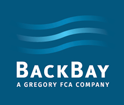This article originally appeared in wealthmanagement.com
Since the end of the global financial panic more than a decade ago, asset managers have grown accustomed to speaking about risk in stark, black-and-white terms. Sometimes, the markets are said to be in “risk on” mode, meaning investors are betting on lower-quality, speculative stocks with high ceilings. Other times, the mood shifts to “risk off,” where investors are told to seek shelter in traditional safe havens like bonds.
The trouble is, bonds proved to be a decidedly unreliable safe haven in 2022, with the broad fixed income market down a stock-like 16% through the end of October. Some funds that focus on Treasuries, which have traditionally been viewed as the safest of safe havens, lost nearly one third of their value.
This raises a communications challenge for asset managers in 2023: How do you discuss risk with investors after a year in which the asset class that they believed was their chief risk management tool failed so badly? How do you bring up topics like rebalancing with investors in the new year, even though this strategy calls for replenishing exposure to asset classes like bonds that lost money in the prior year? And how can you restore investor faith in bonds for the long term?
It’s time to educate a new generation of bond investors. For more than 40 years, investing in bonds has been a fairly simple proposition, as bond prices kept rising as market interest rates precipitously fell from their peak in the early 1980s. But after the Federal Reserve began hiking short-term interest rates aggressively in early 2022 to combat historically high inflation, the four-decade-long bull market in bonds has officially come to an end.
This is not the end of the world. Fixed income managers need to steal a page from equity managers and convey to investors that bear markets are simply par for the course. Investors get that now when it comes to equities, after the bursting of the dotcom bubble in 2000, the global financial panic in 2008, the Covid crash in 2020, and the current downturn. Now is also the time to educate fixed income investors—the vast of majority of whom have never invested in a period of rising rates—that bonds are not a risk-free asset.
Bonds aren’t a monolithic asset class—investors need to know. While it’s true that the broad bond market has been hit hard in recent months, not all fixed income funds have fallen dramatically. Floating-rate bond funds, which invest in bonds and bank loans with adjustable or variable rates, performed much better in 2022, with some posting modest gains. Shorter-term Treasury bond funds, which are less exposed to interest rate risk because their securities mature more rapidly, have also held up better than the broad market.
Interest rate risk isn’t the only risk bond investors need to be mindful of. Over the past year, bond investors have gotten a crash course on interest rate risk—the risk that bond prices will fall when market interest rates rise. But as the Fed has been raising rates to cool inflation, it has also pushed the economy to the brink of recession. This means that in 2023, investors will need a refresher course on credit risk, as defaults could spike in challenging times.
Of course, for every risk there is also an opportunity. And that’s another thing asset managers need to communicate: If the Fed pushes the economy into a recession, it is likely to start trimming rates again, and that could restore a tailwind for future fixed income gains on a total return basis.
Paul J. Lim is Senior Vice President and Head of the Asset Management group at BackBay Communications, an integrated public relations, content marketing, and branding firm focused on asset management, fintech, impact investing, and private equity clients.


